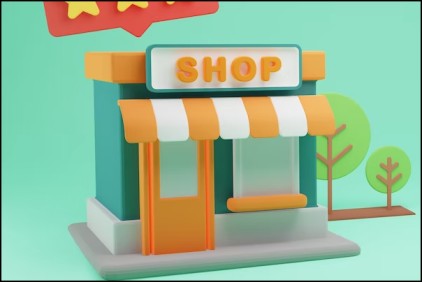Table of Contents
Describe a Problem You Had While Shopping Online or in a Store

Cue card
You should say:
– When it happened?
– What you bought?
– What problem you had?
– And explain how you felt about the experience
Sample answer 1
Introduce the topic to your listener:
The problem I’ll describe is about being harassed by customer service staff from an online store.
1. When it happened?
It was about two months ago. The cleanser I was using was running out and the store where I always buy skincare products was out of stock, so I decided to find another store.
2. What you bought?
I came upon a store with a huge fanbase on Taobao and a high rating for product quality, after-sale service and logistics. I also read the comments left by other customers, especially the ones that were not so good to gain a full picture of the possible reasons for complaints. There were only a few such negative comments and people who gave them all left pretty good follow-up comments after using the products for a few days, so they didn’t cause any concern and I bought a Clarins foaming face wash from that store.
3. What problem you had?
When I received the product a few days later, I compared it with the one I was still using, which I’m 100% sure is original, and I found the packaging was flimsy, the product was watery and the scent coming out of the container was totally different from the old one.
It’s counterfeit no doubt. So I posted my disbelief and disappointment online and also talked to the customer service staff, who suggested a full refund in exchange for the deletion of my comment. I was furious. I mean, what kind of solution was that! And so I refused to do what she proposed. What happened for the next two days was their team harassed me by phone calls and text messages for god knows how many times.
4. And explain how you felt about the experience
I wasn’t gonna give in, because it’s not my fault and now I know where those good follow-up comments come from.
| Vocabulary | Meaning | Example |
| cleanser (n) /ˈklen.zər/ | a substance used for cleaning, especially your face. | I use cleanser on my face every night. |
| run out (phrasal verb) | to finish, use, or sell all of something, so that there is none left. | “Do you have any milk?” “Sorry, I’ve run out.” |
| skincare (n) /ˈskɪnˌkeər/ | things that you do and use to keep your skin healthy and attractive. | a skincare product/regime. |
| out of stock (adj) | products that are out of stock are not available to buy in a store because they have all been sold. | You will be notified by email if any part of your order is out of stock. |
| come upon (phrasal verb) | to find something or meet someone unexpectedly. | I came upon this book in the attic – would you like it? |
| fanbase (n) /ˈfæn.beɪs/ | the fans of a singer, group, team, etc. considered as a group. | The singer has a loyal fanbase in Europe. |
| a full picture of | the full or overall sense of a situation or topic, taking into account all related factors and consequences. | |
| complaint (n) /kəmˈpleɪnt/ | a statement that something is wrong or not satisfactory. | I’ve made a complaint to the police about the noise. |
| follow-up (adj) /ˈfɒl.əʊ/ | coming or done after a related event or action . | Reporters can have one follow-up question. |
| foam (n) | a mass of very small bubbles formed on the surface of a liquid. | |
| flimsy (adj) /ˈflɪm.zi/ | very thin, or easily broken or destroyed. | a flimsy cardboard box |
| watery (adj) /ˈwɔː.tər.i/ | containing or filled with water. | watery eyes |
| counterfeit (adj) /ˈkaʊn.tə.fɪt/ | made to look like the original of something, usually for dishonest or illegal purposes. | |
| disbelief (n) /ˌdɪs.bɪˈliːf/ | the feeling of not being able to believe that something is true or real. | He shook his head in disbelief when I told him about the crash. |
| refund (n) /ˈriː.fʌnd/ | an amount of money that is given back to you, especially because you are not happy with a product or service that you have bought. | get/receive a refund |
| in exchange for | the act of giving something to someone and them giving you something else | They were given food and shelter in exchange for work. |
| furious (adj) /ˈfjʊə.ri.əs/ | extremely angry | I was late and he was furious with me. |
| propose (v) /prəˈpəʊz/ | to offer or suggest a possible plan or action for other people to consider. | She proposed a boycott of the meeting. |
| give in (phrasal verb) | to finally agree to what someone wants, after refusing for a period of time. |
Sample answer 2
Earlier this month, I was after a new adaptor for my new phone, and I came across this online store on Taobao, which is the biggest online shopping platform in China. Seeing most of the comments from the previous buyers are quite positive, I thought it would be a reliable store.
So, I asked about the adaptors and the online salesperson recommended this nifty what he called “state-of-the-art” adaptor that apparently works on all phones. So, I asked if it would work on my Samsung model.., and he said yeah, of course.
Well, the sales assistant was very confident, and dismissed any questions saying it will work, I guarantee you, I stake my life on it. So I took a chance and thought it would be fine. It turns out though, that it didn’t fit! Now, my first reaction was that he had blatantly lied to me, just to make a sale. Naturally, I was a little annoyed, but then I thought, maybe he had just made a mistake. Maybe, I was being too forgiving. In any case, I complained and requested a change or refund.
The salesperson actually seemed genuinely surprised that it didn’t work. But anyway, he let me change it for another one and reimbursed me with the price difference. So it worked out well in the end!
Part 3
1. What kind of customer service do you think is good?
Well, I guess a good customer support agent needs to be a product expert. They should believe in their product. And they should be able to discuss the product features in an insightful way. And not to mention troubleshoot anything that is not working right. So the good customer service can help the customers get the most out of their purchase and feel like they got true value for their money.
2. What are the differences between shopping online or in store?
Well, the most apparent distinction is the price. If you buy something online, it’s usually way cheaper. And that’s so true when it comes to books. There could be at last a 40% discount online compared with the brick-and-mortar stores, Another difference is the attitude. Off line shopping can be pleasant due to the hearty smile and attentive service. But online customer interactions are not face to face. It’s easy to misinterpret the tone of written communication, which can come across as cold.
3. What problems do customers often have while shopping?
The biggest problem is to find the best product within their budget. They have to find the middle ground between the cost and the quality. Another problem is that the shop owner will exaggerate the features of the products and twist your arms to buy what you don’t need. Sometimes the customers will have to choose from the products which don’t live up to the hype.
4. What do you think customers should do when there are problems with products bought online?
They should find the customer support agents and inform them of the issue. It’s a way to identify whether the malfunction is innate or because the user didn’t follow the instructions. And then, if the problem lies in the product, customers can submit a complaint and get a refund.
Some IELTS Speaking part 2 cue-cards you may like :
- (Update 2024) Describe a person you know who is from a different culture IELTS Cue Card
- (2024) Describe a time when you saw a lot of plastic waste (e.g. in a park, on the beach, etc.)
- (2024) Describe a time when you received money as a gift
- (Update 2024) Describe a program you like to watch IELTS Cue Card
- (Update 2024) Describe a person who likes to dress fashionably/well IELTS Cue Card
- (Update 2024) Describe a special day out that cost you little money Free lesson
- (Update 2024) Describe a positive change that you made in your life Free lesson
Credits
Vocabulary: Cambridge Dictionary
Image : Photo by Andy Hermawan on Unsplash


